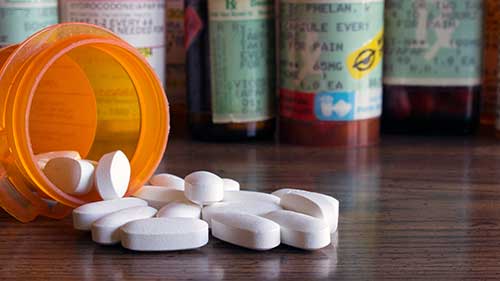Any substance that chemically alters the body, whether illicit, prescribed or legally available, has the potential for abuse and the development of addiction. By interfering with normal brain function, these substances can diminish the brain’s ability to self-regulate, ultimately leading to substance dependence.
Despite this common occurrence, some substances are more addictive than others. Correlation with addiction may stem from the drug’s potency or by the active prevention of experiencing withdrawal symptoms. Regardless of the mode of addiction, any chemically altering substance is dangerous when used for a prolonged period of time or in excess.
How Addictive is Alcohol?
Due to its legality and accessibility, alcohol yields a very high rate of addiction. According to Harvard Medical School, Alcohol abuse is the second most common form of substance abuse in the United States, after tobacco addiction. An estimated 10% of adult men and 5% of adult women have an alcohol use disorder.

Dangers of Alcohol Abuse
As a Central Nervous System depressant, alcohol significantly decreases brain and vital organ function. Once ingested, alcohol increases the activity of GABA neurotransmitters which promote sedation and muscle relaxation. Prolonged exposure to alcohol will disable the brain from organically managing GABA and the brain becomes dependent on alcohol for the desired effects. Over time, alcohol abuse can lead to brain shrinkage and damage. Since alcohol is a depressant, it significantly impairs the respiratory system which prevents vital organs from receiving the amount of oxygen they need to properly function.
In addition to brain damage, alcohol also severely impacts the heart and liver, leaving them vulnerable to disease and malfunction. Consistent drinking has a significant impact on cardiovascular health, as excessive use can raise blood pressure, cause arrhythmia or heart disease over a prolonged period of time. In regards to liver damage, the impact of heavy drinking may result in hepatitis, fatty liver disease, portal vein hypertension, cirrhosis, or, ultimately, liver failure.
Although severe disorders can develop through heavy, prolonged alcohol consumption, impaired driving while under the influence is the leading cause of alcohol-related fatalities. Because alcohol slows reaction time and impairs motor skills, car accidents are common among those who abuse this substance. The Centers for Disease Control and Prevention report that 29 people in the United States die each day in motor vehicle crashes that involve an alcohol-impaired driver, totaling one death every 50 minutes.

Signs of Alcohol Abuse
Alcoholism has a profound impact on an individual’s life and health. The following side effects are indicators that alcohol use has become a dangerous addiction.
- Short-term memory loss
- Self-isolation
- Irritability and extreme mood swings
- Neglecting responsibilities and obligations in order to drink
- Drinking in secrecy
- Experiencing headaches or withdrawal symptoms when not drinking
- Neglecting personal hygiene
- Financial stress
Asheville Recovery Center Can Help
Alcohol is a highly addictive substance that has the potential to cause irreversible damage when abused. It is important to seek help immediately if you or a loved one is struggling with this addiction. At Asheville Recovery Center, treatment specialists have developed a unique, hybrid model of treatment which combines a traditional 12-step program with holistic rehabilitation. A multitude of services, programs, and therapies are offered, including the Partial Hospitalization Program, Residential-style treatment, outpatient rehabilitation, and more.
The founders of Asheville Recovery Center, as well as many of our addiction therapists, have struggled with addiction and now enjoy life in recovery. They understand the struggles of addiction and how difficult it is to overcome alone. If you feel that you or a loved one is struggling with substance abuse, our specialists are on standby and ready to help. Call (828)518-6996 and speak with an addiction expert today so you can take the first step towards a rewarding life of sobriety.





